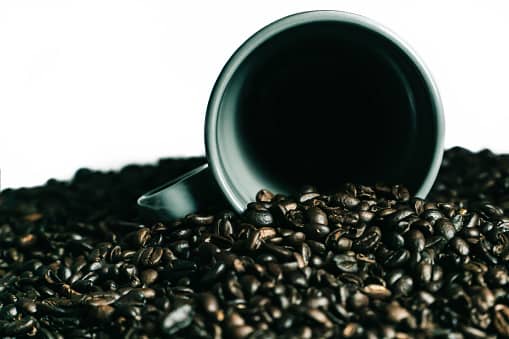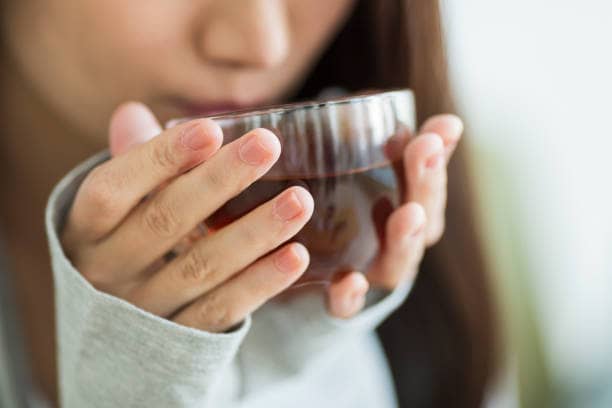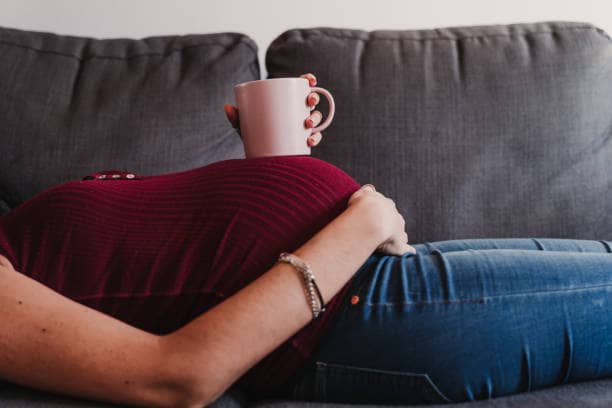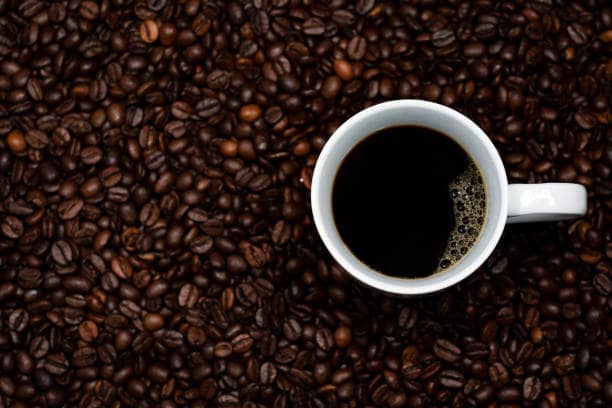Caffeine is one of the main things people look to avoid when choosing decaf coffee. Caffeine can act as a diuretic, which means it causes you to urinate more frequently and can lead to dehydration.
However, the amount of caffeine in decaf coffee is much lower than a regular cup of coffee – typically around 2-12 milligrams per cup, compared to 95-200 milligrams for a cup of regular coffee.
This means that decaf coffee is unlikely to cause dehydration, even if you drink it in large quantities.
In this article, we’ll talk about the question coffee drinkers are commonly asking, “does decaf coffee dehydrate you?”
So if you’re wondering how decaf coffee affects you, keep reading to find out!
- What is decaf coffee?
- The methods behind organic decaffeinated coffee
- How much caffeine is in decaf coffee?
- Is decaf coffee dehydrating?
- Is Decaf coffee hydrating?
- What are the benefits of drinking decaf coffee?
- What are the side effects of decaffeinated coffee?
- Is drinking decaf coffee bad for you?
- Can I drink decaf coffee while pregnant?
- What is the difference between decaf coffee and regular coffee?
- The Bottom Line
- FAQs
What is decaf coffee?
Decaffeinated coffee is coffee that has had the vast majority of its caffeine removed.
The decaffeination process can be done using various methods, but most commonly involves using water or steam to extract the caffeine from the beans of coffee.
This leaves behind a product containing all of the other compounds that give coffee its flavor and aroma, but with very little caffeine.
The methods behind organic decaffeinated coffee
There are a few ways to remove the caffeine from coffee beans, but the most common method is called the Swiss water process.
This involves soaking the beans in hot water to extract the caffeine, then running them through a charcoal filter to remove the caffeine from the water. The beans are then dried and roasted as usual.
The Swiss water process was developed in the 1930s and is still used today by many coffee companies.
It’s a safe and effective way to decaffeinate coffee beans, and it doesn’t require the use of chemicals so it’s considered a more natural way to decaffeinate coffee.
If you’re looking for an organic decaf coffee, make sure to check the labels to see if it’s been decaffeinated using the Swiss water process.
How much caffeine is in decaf coffee?
97% of the caffeine is removed from decaffeinated coffee during the decaffeination process.
This leaves an average of 2-12 milligrams of caffeine per cup, with some variations depending on the type of bean and decaffeination method used.
In comparison, a cup of regular coffee has a caffeine content of about 95-200 milligrams. So even though decaffeinated coffee still has some caffeine, it’s a vastly lower amount than ordinary coffee.
This means that you would need to drink around 8-10 cups of decaffeinated coffee to get the same amount of caffeine as one cup of ordinary coffee.
So if you are limiting your caffeine intake and still want to drink coffee, decaf coffee is the one for you,
Is decaf coffee dehydrating?
Caffeine is a diuretic, which means it can increase your urine output, which can lead to dehydration.
However, the amount of caffeine in decaf coffee is much lower than in regular coffee, so it is unlikely to cause dehydration. Instead, it will add to your daily fluid intake.
In fact, there was no difference in hydration levels between people who drank decaffeinated coffee and those who didn’t drink any coffee at all.
So if you’re wondering, “does decaf coffee dehydrate you?” the answer is no.
However, it’s important to remember that everyone responds to caffeine differently, so some may experience mild dehydration after drinking decaf coffee.
If you’re concerned about dehydration, try to drink plenty of water throughout the day and limit your intake of caffeinated drinks.
Is Decaf coffee hydrating?
Since the diuretic qualities of caffeine are removed during the decaffeination process, decaffeinated coffee is more hydrating than a normal coffee.
So if you’re looking for a hydrating beverage, decaffeinated coffee is a good choice.
Just be sure to drink it in moderation, as too much coffee can have adverse effects on your health.
However, although a decaffeinated coffee is more hydrating than a normal coffee, it shouldn’t be a replacement for water fluid intake.
Make sure to drink plenty of water throughout the day, regardless of whether you’re drinking coffee.
What are the benefits of drinking decaf coffee?
Even though caffeine-free coffee has less caffeine than ordinary coffee, it still contains other compounds that offer health benefits.
For example, decaf coffee is a good source of antioxidants linked to a lower risk of chronic diseases like heart disease and cancer.
Decaf coffee also contains small amounts of minerals like potassium and magnesium, which are essential for maintaining health.
So if you’re looking for a healthy alternative to regular coffee, decaf coffee is a good choice.
What are the side effects of decaffeinated coffee?
Drinking too much coffee can lead to side effects like anxiety, insomnia, and restlessness.
However, these side effects are more likely to occur with normal coffee, as it contains more caffeine.
It’s also important to note that decaf coffee still contains small amounts of caffeine, so some may still experience side effects like jitteriness and irritability.
If you’re sensitive to caffeine, it’s best to avoid drinking decaf coffee or limit your intake to one cup per day.
Is drinking decaf coffee bad for you?
Our body has a natural caffeine limit it can handle in a day, about 400mg. Consuming more caffeine than this can lead to side effects like anxiety, jitteriness, and trouble sleeping.
However, since decaf coffee contains such a small amount of caffeine, it’s unlikely to cause these side effects.
So if you’re wondering, “is decaf coffee bad for you?” the answer is no. However, it’s important to remember that everyone responds to caffeine differently, so some may experience side effects after drinking decaf coffee.
Can I drink decaf coffee while pregnant?
Yes, you can drink decaf coffee while pregnant. In fact, it’s recommended that pregnant women limit their caffeine intake to 200mg per day.
Since decaf coffee contains such a small amount of caffeine, it’s unlikely to cause any adverse effects on pregnant women.
However, it’s still important to drink in moderation, as too much coffee can have adverse effects on your health.
What is the difference between decaf coffee and regular coffee?
The main difference between decaf coffee and regular coffee is that decaf coffee contains less caffeine.
Decaf coffee is made by removing the caffeine from regular coffee beans, which makes it 97% caffeine-free while the taste, aroma, and other health benefits of regular coffee remain.
So if you’re looking for a healthy alternative to regular coffee, decaf coffee is a good choice.
The Bottom Line
In conclusion, decaf coffee does not dehydrate you. In fact, it can have the opposite effect. However, there are a few things to keep in mind if you want to stay hydrated while drinking coffee.
If you are concerned about dehydrating yourself with coffee, you can rest assured that it is practically impossible. However, if you want to stay hydrated, make sure to drink plenty of water throughout the day.
FAQs
How Much Coffee Would You Need To Drink To Dehydrate Yourself?
As we said, the amount of coffee that you would need to drink in order to dehydrate yourself is so high that it is practically impossible.
In fact, studies have shown that you would need to drink around eight cups of coffee in order to dehydrate yourself. However, this is an extreme amount of coffee and is not recommended.
Is decaf coffee healthier than regular caffeinated coffee?
No, decaf beverages are not necessarily healthier than regular coffee. The decaffeination process may actually remove some of the beneficial compounds in beans of coffee
Does decaf coffee taste as good as normal coffee?
Yes. Many people believe that decaf coffee tastes just as good as better than regular coffee. This is likely because decaf coffee is less acidic and has a milder flavor than regular coffee.







